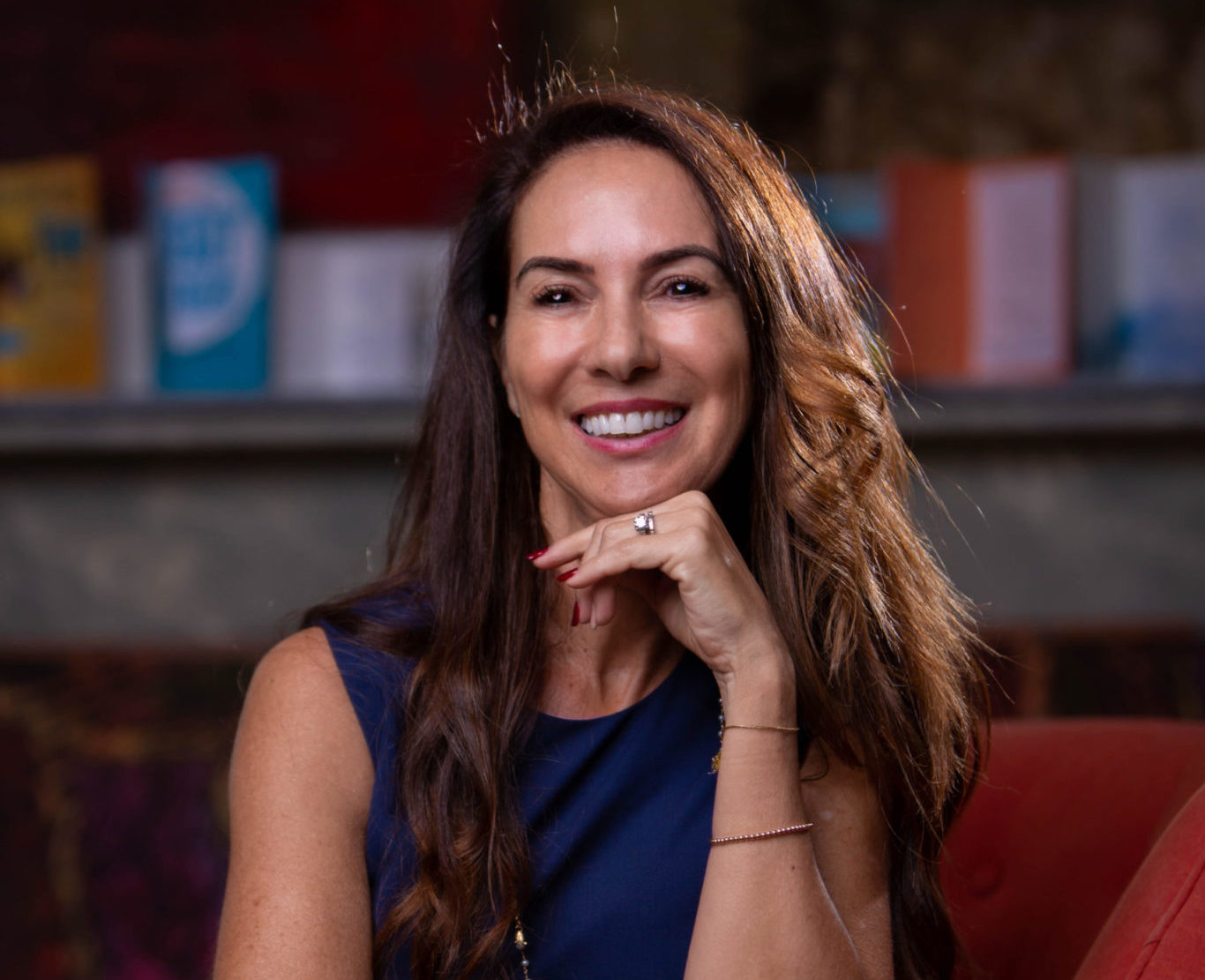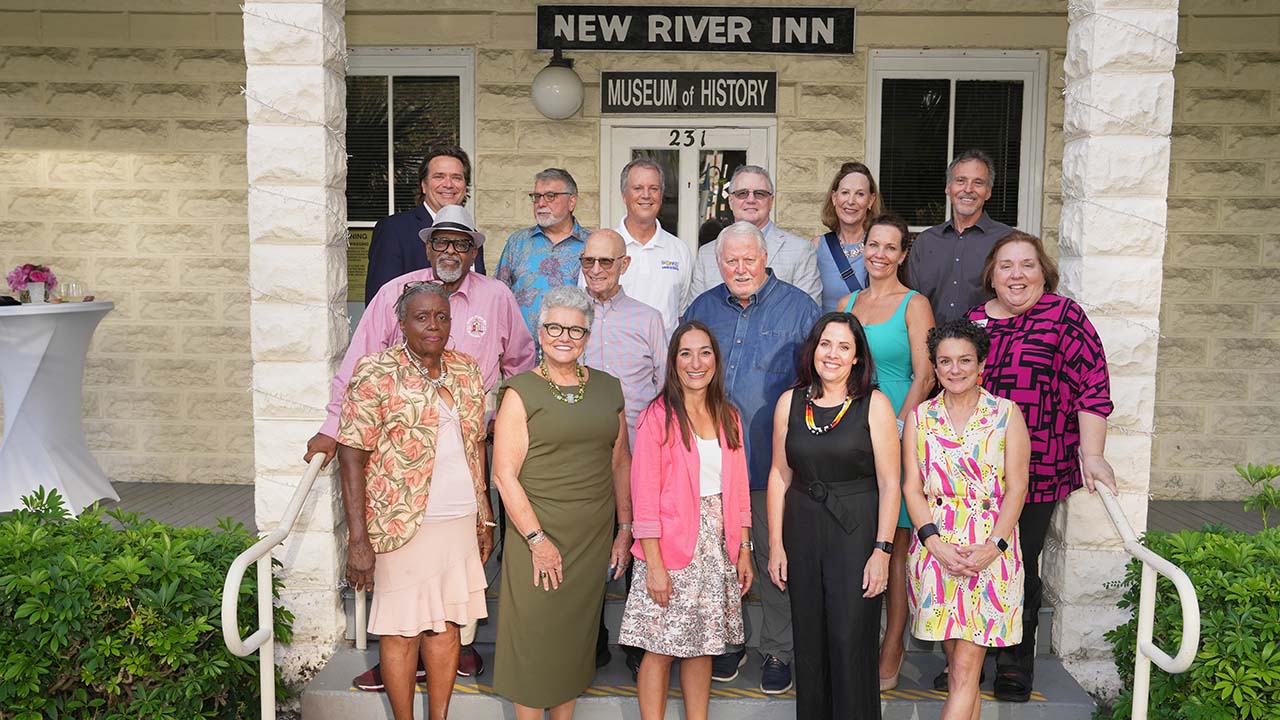[vc_row css_animation=”” row_type=”row” use_row_as_full_screen_section=”no” type=”full_width” angled_section=”no” text_align=”left” background_image_as_pattern=”without_pattern”][vc_column][vc_column_text]
“Basically, I could be talking about opportunity zones in the morning, working on business valuations during lunchtime, and then preparing equitable distribution schedules with family law matters in the evening,” says Melisse Burstein, a partner at the Miami CPA firm Gerson Preston. “I really am involved in a lot of different areas of the firm. I would say, though, based on my experience and expertise, I specialize in certain areas, probably taxes, particularly with respect to real estate and hospitality. And also I would say valuation and litigation—within the estate planning and family law areas.”
Raised in Miami Beach—her father was the founding partner of the firm—Burstein filled out her résumé with a bachelor’s degree from Skidmore College in upstate New York, a master’s in accounting at Northeastern University and seven years at Ernst & Young in Manhattan. In a wide-ranging conversation touching on investment strategies, opportunity zones and more, Burstein generates thought-starters for a conscious financial life.
I often think about the fact that financial literacy isn’t taught in high school or college, and I know that’s an interest of yours.
I actually speak to women on financial literacy. Whether you’re single or married you should get involved—I get my kids talking with brokers and they’re 21, 19 and 15. I think that would be an appropriate age.
What if you had a parent as a client and they wanted you to sit down with their kids for an hour. What would you tell them?
I would go through what we call a financial affidavit. You’re looking at deposits and disbursements, assets and liabilities. Get them to understand investments that generate money.
With students preparing for college next fall, I’m thinking about the financial security of this demographic. A few months ago on CNBC, Jim Kramer made the point that if the market shapes up in the next 40 years the way it has in the last 40 years, a $10,000 investment in an index fund that follows the S&P could grow, in 40 years, to more than $400,000. That’s at a 10 percent return per year, on average.
That’s a big assumption. I have a big smile on my face because my son just mentioned that to my daughter, I swear to you. He’s at Wharton and he’s pretty smart, so now, of course, my daughter wants to put money in an index fund. He just told her that.
And you never look at it again—for 40 years.
What I tell all my clients is that they can set up 529 plans for the kids, even though it’s going to be for educational purposes. You can put it in and it grows tax-free as long as you’re going to use it for education.
And if you don’t?
If you want to take it out and use it to buy a boat, you’re going to pay taxes on it.
Tell me about your work with women.
A friend of mine founded a company called Strong Girls Inc. It’s a mentoring program for young girls, grades 3-12, and they’re primarily in underserved communities. It’s an afterschool program. I became interested in this whole area of financial literacy with respect to women just because of the work that I was doing with family law. And what I was finding is these women were coming into my office and they had these triggering events, whether it was divorce or death, and they’d never been involved with any of the finances. And it was so stressful to them because now they’re faced with this triggering event, and they’re stuck with the notion that they’re going to have to take over the finances—and these are very bright people who were just were never involved. But it’s never too late. Some of my advice is, you know, start taking an active role in your finances. I try to make a point of sitting with both spouses before they sign tax returns.
[/vc_column_text][vc_empty_space][blockquote text=”What I tell all my clients is that they can set up 529 plans for the kids, even though it’s going to be for educational purposes. You can put it in and it grows tax-free as long as you’re going to use it for education.” show_quote_icon=”yes”][vc_empty_space][vc_column_text]

What is one pressing area that the 2020 election might affect, in terms of financial planning?
Right now for the tax year 2020, the lifetime gift tax exemption is $11.5 million. So, basically, what that means is you can give up to $11.5 million in gifts, over the course of your lifetime, without ever having to pay any tax, and for married couples each spouse would get that. So there’s a lot of talk, and Joe Biden has even said, that he’s going to go back to the exemption levels of 2009 which were only $3.5 million. So I have clients calling me daily, because no one’s quite sure what they’re going to do in terms of making it effective from Jan. 1, 2021, and changing that exemption. But I’ve spoken to many attorneys and they don’t think this change would happen retroactively—I don’t think there’s a historic precedent for that—but we tell our clients that the risk is low but the stakes are high, so be prepared.
How important should property ownership be to investors?
I think property ownership is a great investment, both as a personal residence and solely as an investment. There’s are some great tax benefits to consider. You know I tell my young clients all the time, if I see they’re renting, they may want to consider purchasing a property because there’s tax incentives for doing so—you have itemized deductions that you can take. If there’s a mortgage you can deduct the mortgage interest, up to certain amounts, and you deduct property tax, again, up to certain amounts. A lot of my clients are real-estate investors and I could go on and on about some great tax strategies for real estate investors, especially in today’s climate where you have bonus depreciation. You get long-term capital gain treatments if you hold the property for more than a year, so that you can dispose of it and get a better rate than if it were ordinary income.
Are there any other real estate-related expenses that people tend to overlook, like traveling to the property to maintain it?
You can deduct anything related to your property if it’s a rental property—it’s a business like any other. If you’re buying furniture or appliances or making other property improvements, you can expense that 100 percent until 2022. Now that phases out, starting in 2022 through 2026.
And how does your work in opportunity zones fit into your practice?
So opportunity zones were part of the Tax Cuts and Jobs Act of 2017 and I’ve spoken on this a few times already. And, basically, it was designed to encourage investments in low-income communities designated as qualified opportunity zones. Fortunately, I had clients who were probably among the first to take advantage. You have to have a triggering event that creates capital gains in order to take advantage of the tax advantages of opportunity zones. A triggering event would be anything that generated a capital gain, selling a practice, or even selling stock. There’s a temporary deferral on that date—so say for instance you sold something that generated a capital gain of $5 million. You’re still going to have to pay the taxes on that $5 million come 2026, but you’re going to get a step up, meaning part that capital gain is going to be excluded. So if you had invested by 2019, 15 percent of that gets eliminated, and by 2021, it’s 10 percent.
And there are even more benefits to investing in an opportunity zone, right?
Yes, even more attractive, is that when you take that $5 million, and you invest it in one of these qualified opportunity zones, you have a permanent exclusion on that gain. As long as you leave it for 10 years. So if you invest in 2021, hold off, which takes you to 2031. Then if you decide to sell it, there’s no taxes on that capital gain.
What about the risks?
We don’t know what’s going to happen with the new administration, but as a comment to our clients, we tell them just know that the capital gains rates may go up in 2026. You might be paying a higher cap rate, which is the risk, but it’s still maybe worth it to get that permanent exclusion on your opportunity zone. Some might say, don’t do this just for the tax advantage—you still have to make sure it’s a good deal. And the problem is a lot of people were saying that there was premium put on some of these properties just because they’re in a qualified opportunity zone. So you really have to make sure the deal, economically, still makes sense.
Last question: Do you have a favorite stock or sector?
You’re asking an accountant—I’m very conservative.
Photos by Larry Wood[/vc_column_text][/vc_column][/vc_row]
















